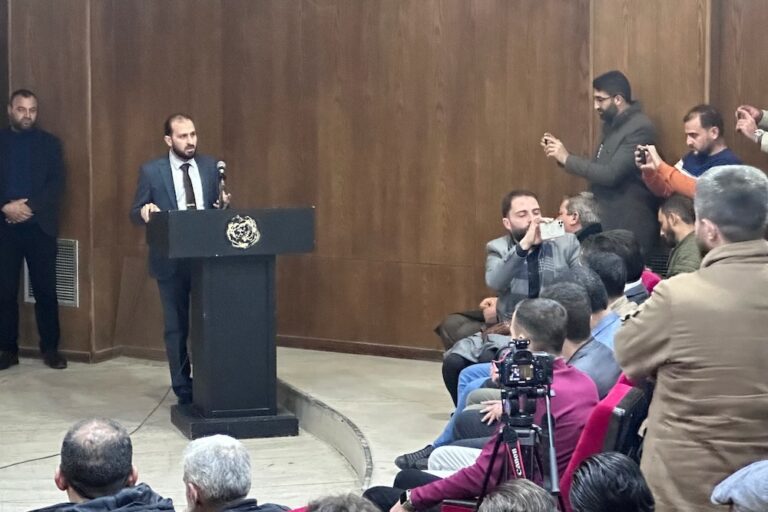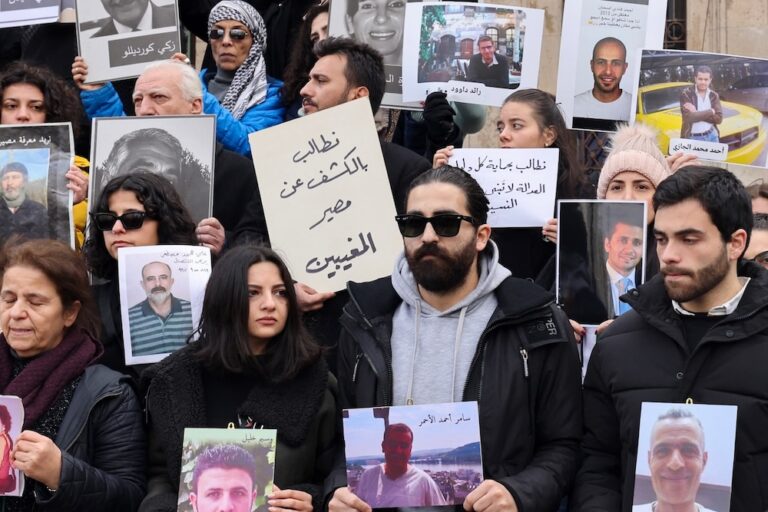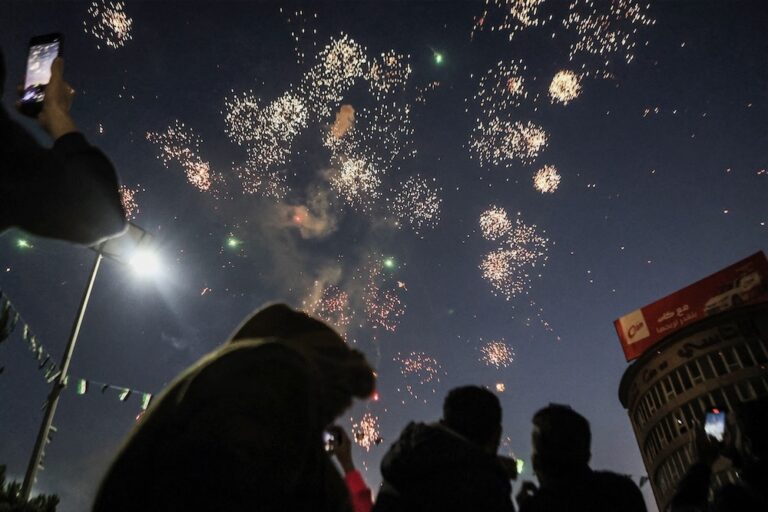Human Rights Watch urged authorities to lift the siege of the southern town of Daraa.
(Human Rights Watch/IFEX) – New York, May 6, 2011 – Syria’s government should immediately lift its 10-day siege of the southern town of Daraa and allow movement in and out of the city, including access for independent observers, Human Rights Watch said today. Syria’s security forces should also immediately stop the nationwide campaign of arbitrary arrests against protesters and activists, Human Rights Watch said.
Syria’s army surrounded Daraa on April 25, 2011, cutting electricity, phone lines, and internet services, and preventing any movement into and out of the city, including for humanitarian supplies of medicines and food. Agence France-Presse and Syrian TV reported on May 5 that the army had started to withdraw from Daraa. However, a Daraa resident reached by Human Rights Watch on a satellite phone indicated that the military was still restricting movement into the town, including the import of essential food and medicine items.
“The Syrian government is collectively punishing the residents of Daraa because some demonstrators from the town dared protest against it,” said Sarah Leah Whitson, Middle East director at Human Rights Watch. “It would appear that the government has a lot to hide, because it’s refusing to let Daraa residents out or independent observers in.”
The siege violates Syria’s obligations, as a party to the International Covenant on Civil and Political Rights (ICCPR), to respect fundamental rights and the rules of law guaranteed in the treaty. Even during a genuine emergency, any restrictions on rights must be strictly limited and justified by the exigencies of the actual situation, conditions that Syria has not met.
Daraa
Daraa has suffered the brunt of the Syrian authorities’ violent crackdown against anti-government protests. Syrian human rights groups have issued a list containing the names of more than 350 individuals who have died in the city. Access to information about the situation inside Daraa became much harder after the army imposed a full siege in the early hours of April 25. One resident of a nearby village told Human Rights Watch on May 3 that: The borders of the city are completely blocked off. No one can leave or enter – no medicine, flour, gas, milk, or electricity. Nothing. We are particularly worried about the old part of town, Daraa al-Balad, which has been particularly hit hard. We keep hearing reports of the army breaking into homes and shops stealing belongings and damaging properties.
( . . . )
Nation-wide campaign of detentions
Syrian authorities have also launched a nationwide campaign of arrests of activists and protesters, including many women. In some cases, security forces have detained family members of activists, apparently to put pressure on them to cease their activities. Most arrests, if not all, appear to be arbitrary and in violation of international law.
On April 30, security forces surrounded the house of political activist Wael Hamadeh in Damascus. Hamadeh was away from his home so security forces detained his brother, Abdel Rahman Hamadeh, 20, instead. Razan Zeitouneh, the wife of Wael and a human rights activist herself, described the situation: “The security forces showed up at the house. Wael and I were somewhere else. They kept shouting at the door telling Abdel Rahman that they wanted to speak to Wael. They made Abdel Rahman call Wael to ask him to come to the house. Sensing a trap, Wael did not go. So the security forces took Abdel Rahman instead even though he had nothing to do with the protests. We have not heard from him since.”
Human Rights Watch also received information from Syrian human rights groups about two other cases where security forces detained family members instead of the intended targets as a way to pressure activists to turn themselves in. On April 27, security forces detained Farouk al-Basle, the son of political activist Bassam al-Basle, when they failed to find Bassam al-Basle at his house, according to a Damascus-based lawyer. The lawyer also told Human Rights Watch that on April 30, security forces went to the Harasta house of Mahmoud Mudallal, a political activist, to arrest him. When they did not find him, he said, they detained three of his brothers and his son, who is 15. In another case, the Guardian newspaper reported on May 2 that security forces in Daraa detained the 22-year-old nephew of the political activist Ayman al-Aswad.
“Syria’s security services apparently know no bounds,” Whitson said. “In holding someone’s brother or son as hostage, they are acting more like a criminal gang than a legitimate state force.”
On April 30, security forces detained 11 women who participated in a peaceful women-only silent protest in Arnous, near the center of Damascus. According to a Syrian activist, the security forces beat some women in an effort to disperse them, breaking a finger of one woman. The government released the women on May 2, the activists said but they still face charges, the exact nature of which are unknown. On May 2, another group of women in Arnous held a peaceful protest calling for an end to the killings and lifting the siege on Daraa. Security forces detained several protesters, including Lina Muhammad, a member of the National Commission for the Union of Syrian Communists. At the time of writing, Muhammad remains in detention.
( . . . )
Targeted Arrests of Activists
Syria’s security services also targeted dozens of political and human rights activists for arrest. According to a member of the Arab Organization for Human Rights, on April 27, security forces detained Rasem al-Atassi, 66, former president of the Arab Organization for Human Rights in Syria, and a board member of the regional Arab Organization for Human Rights, after they called him in for interrogation. He said that they referred him to a military investigative judge in Homs who issued an order to detain him for 15 days while they investigated him for providing money and a gun to protesters.
A Syrian activist and lawyer following the case told Human Rights Watch that the prosecutor based his charges on forced confessions extracted from two detained young men. According to the activist, the two young men informed the investigative judge that security forces had obtained their confessions under torture, but the judge kept al-Atassi in detention.
On April 28, security forces detained 81-year-old Hasan Isma’il Abdel Azeem, the Secretary General for the Party of the Arab Socialist Democratic Union from his office, according to a political activist and human rights lawyer. He remains in detention.
On May 2, agents from the Criminal Security division detained journalist and activist Dana al-Jawabra from outside her house in Damascus and forced her into a white Kia Rio with a private license plate, according to a witness who spoke to a Damascus-based activist. Al-Jawabra, who hails from Daraa, was active in attempts to break the siege of the town by attempting to arrange for a relief convoy, a Damascus-based activist who knows her told Human Rights Watch. Security forces previously had detained her for a few days on March 16 following a protest outside the Ministry of Interior calling for the release of political prisoners.
“Syria’s authorities think that they can beat and kill their way out of the crisis,” said Whitson. “But with every illegal arrest, every killing of a protester, they are precipitating a larger crisis.”


